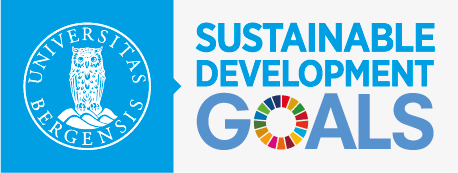Researching sustainable management of natural resources
Biologist Dorothy Dankel believes that credible and salient management of cultural and ecological heritage sites is crucial to supporting a sustainable ocean economy. Her new research project, LoVeSe-SDG, is funded by the Research Council of Norway.

Hovedinnhold
The main question the LoVeSe-SDG project aims to answer is: How can cultural heritage and cultural environments be used and managed in an integrated and sustainable way? The project is one of a growing number of research projects at the University of Bergen (UiB) engaging critically with the Sustainable Development Goals (SDGs).
Connecting science and policy
The project is focussed on the Lofoten-Vesterålen-Senja (LoVeSe) region in Norway, which is iconic due to its natural beauty and bountiful renewable resources under water. However, the region is seeing increased human activity in the form of resource exploitation, tourism and industry.
“My research connects two key domains of sustainable development: science and policy. In order for coastal communities to continue their traditional fisheries practices, which are connected to and part of their cultural heritage, it is pivotal to ensure sustainable management of the ecosystems on which these are based,” says Dorothy Dankel.
This can create a gap between high-level governance aspirations and policy and the local context, impacting on local practices, preservation of cultural heritage, and sustainability efforts.
“The initial actions of the project are to review current fisheries management measures, methodologies and policies in Norway to determine if fisheries in and around the Barents Sea are on track to meet Target 14.1 of SDG 14: Life below water,” explains Dankel, pointing to managing resources under climate change as another crucial factor in the project assessments.
According to Dankel, LoVeSe-SDG is her dream project come true and she is grateful to the Research Council of Norway for the funding, not the least due to the project's multidisciplinary and methodically untraditional approach. The project includes researchers from four of UiB's seven faculties, underlining its unconventional scope.
Science advice central to project
Already as a PhD candidate, Dankel was active in providing scientific advice to government and other authorities. This is also an important part of the LoVeSe-SDG project, in particular focussing on SDG14: Life below water and SDG13: Climate action.
“With the rich cultural heritage of LoVeSe comes the urgent responsibility of sustainable ecosystem management,” stresses Dankel, “but there is still a lack of routine management policies that explicitly include ecosystem processes.”
She points to the challenges in developing and implementing the indicators required to meet different social, ecological, management and governance contexts for the LoVeSe region.
“The project will assess the salience of the integrated ecosystem assessments of the Norwegian and Barents Seas to the management of Norway’s resources through the socio-political lens of the SDGs,” she explains.
“In addition, we will examine the human networks and scientific groups that put together these new scientific assessments, namely the Working Groups on the Integrated Ecosystem Assessment of the Norwegian and Barents Sea, WGINOR and WGIBAR respectively, and the International Council of the Exploration of the Sea (ICES).”
A critical assessment of the SDGs
Since 2015 and their creation, the SDGs have undergone a series of high-level reviews to determine specific indicators from which success can be measured.
“However, to meaningfully link the SDG indicators to the larger efforts this must begin at the ground-level where local communities can see tangible results to their daily lives,” Dankel says, “and localizing the SDGs does precisely this.”
The project takes indirect problems such as fisheries and their sustainable management and translates them to direct impacts, e.g. understanding the linkages between offshore fish stocks and human well-being.
“We do this not just from a singular, one-dimensional perspective that fish equals food but also from an ecosystem point of view where indirect relationships can be as important as direct relationships. This project will take science and transpose how it is traditionally used to create a pathway for that knowledge to become rooted in day-to-day thinking at the local-level, municipalities of the LoVeSe region, and in policy development at the national level,” says Dorothy Dankel.
